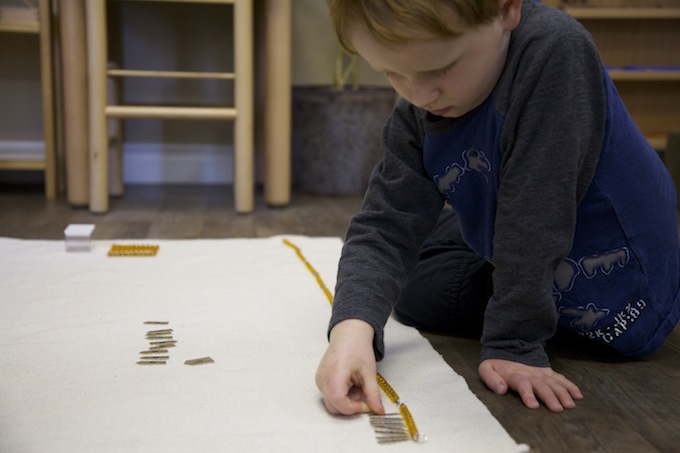Question of Montessori
Thoughts & Reflections

As parents, as members of the community, when we’re faced with a problem, whether the issue is social or intellectual, what is our first response? In most cases, we either shy away from it, or we try to solve it. It only seems like the natural thing to do.
Do you know what Montessori children think when they approach or encounter an issue? They don’t think about either of these solutions. Instead, they ask themselves,
“ “Does this problem make sense? Is this really a problem in the first place?” ”
Let’s examine this logic a little bit further, as it broaches social skills, individual academic skills, and a broader sense of the pedagogy behind Montessori. Let’s call it the logic of Montessori.
There’s a precise reason Montessori recommends that Montessori guides don’t have any formal training in education until they complete their Montessori work. It’s because to learn the Montessori way, the traditional system has to be completely unlearned.
In a lovely book from the 80’s, “Philosophers on Education: Six Essays on the Foundation of Western Thought”, Lawrence and Brumbaugh write: “How often is it realized that sucessful teaching to interested students might well undermine many administrataive problems at their sources?”
Montessori helps children solve problems because it creates a foundation for thinking, for learning, for the development of critical and creativing thinking skills, which are as analytic as they are creative. The first process behind this Montessori logic is to examine the conditions of the problem, not the problem itself.
When we talk about a crisis in education, or watch a film like ‘Waiting for Superman’, these are the issues that need to be addressed. What are the conditions of the problem? Is it really a problem? If you look for answers to false problems, you’ll never address the root of the issue.
All too often, and as a society, we search for immediate solutions. Entire institutions are founded upon this premise. For instance, we want to help a student fix a math problem that they struggle with, but we don’t ask why they struggle with the problem in the first place.
If you have a child that struggles with math, doesn’t understand the concept, can’t quite come to terms with the equation, offering them tutoring solves the immediate problem: they finish their homework, they pass the test, but do they come to a better appreciation of the problem?
We need to return to the fundamentals, to the foundations, to ask, not how to solve a problem, but if the problem is a problem in the first case. We need to examine the conditions of knowledge, of learning and be open and receptive to their feedback.
You can’t download knowledge. With an infinite amount of resources at our fingertips information is never more accessible. However, that does not hold true for knowledge.
“ True knowledge, what it means to think and encounter the work can’t be downloaded. ”
It must be learned. It must be lived.
Written by:
Baan Dek
